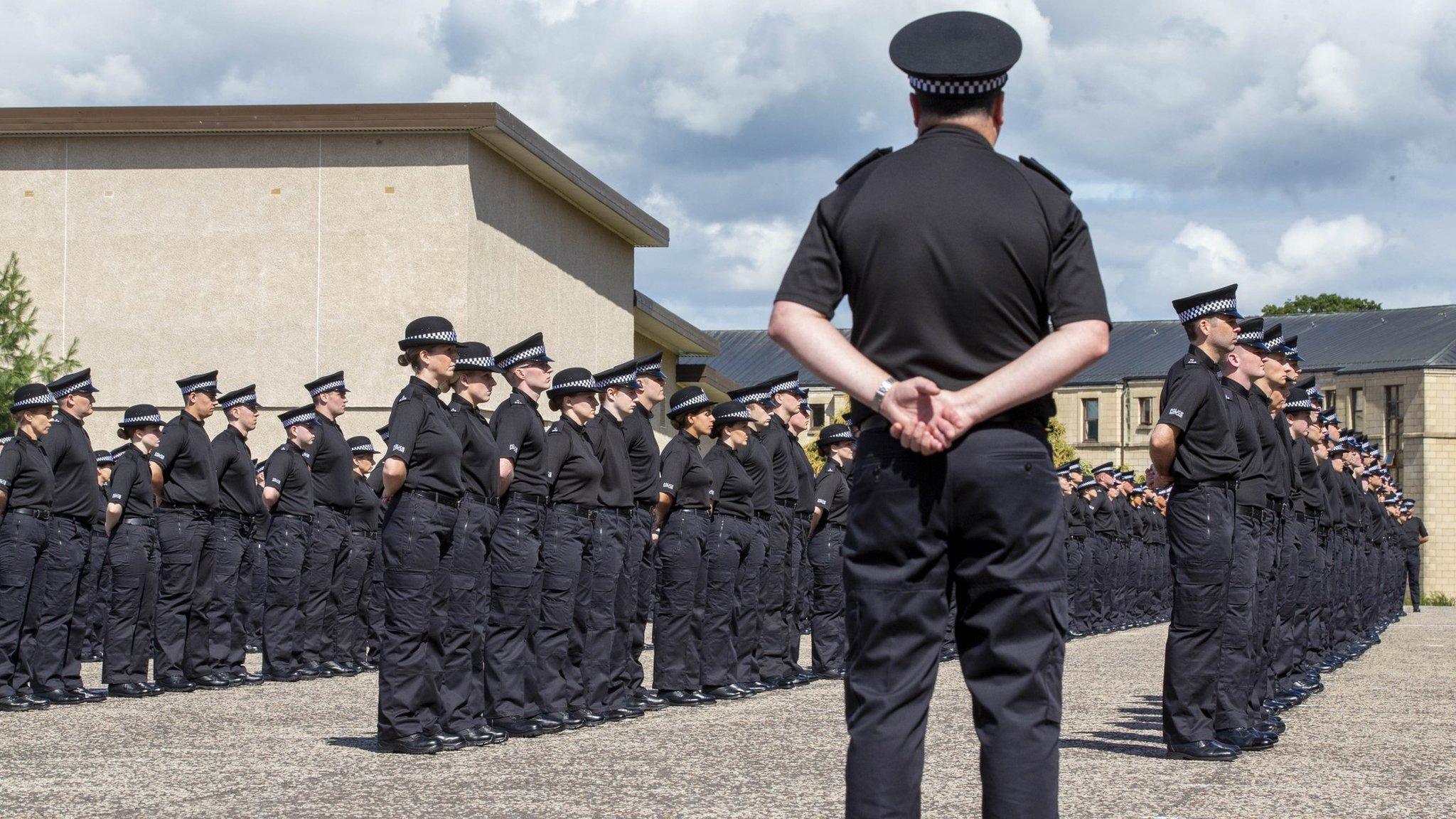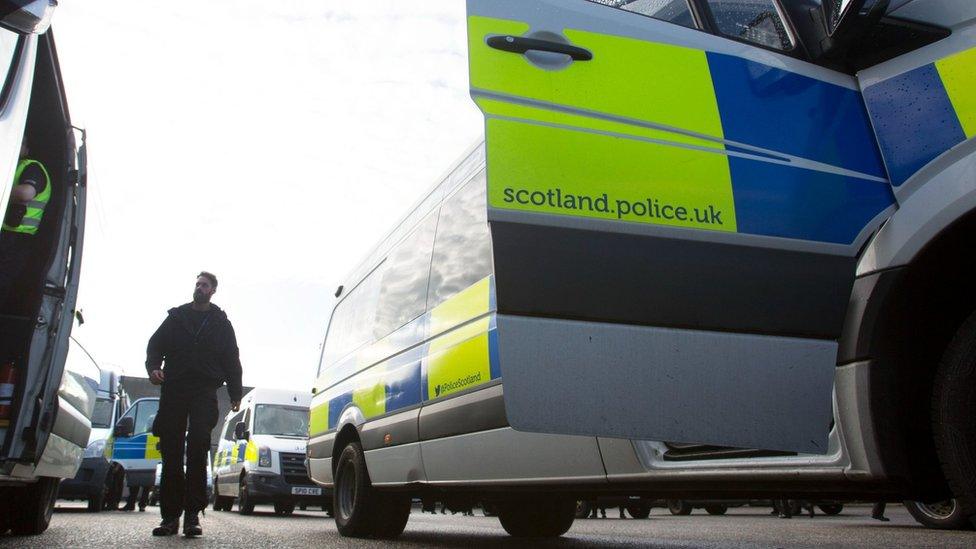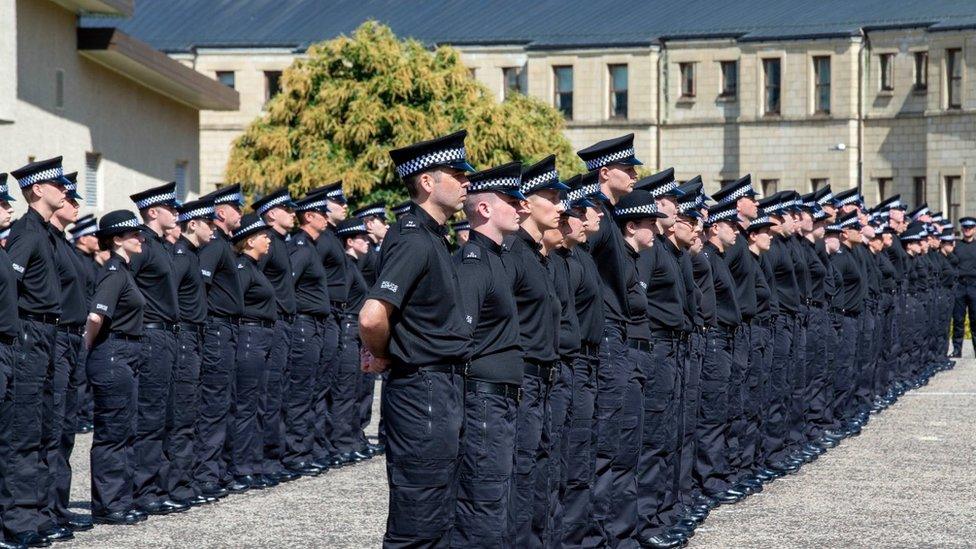Police HQ at Tulliallan closed after Legionnaires' bacteria found
- Published

New police officers taking the oath of office at the force's headquarters in July
Police Scotland's headquarters in Fife has been temporarily closed down after traces of Legionella bacteria were found.
The large site at Tulliallan, which includes the Scottish Police College, shut on Tuesday.
The bacteria, which can cause very serious lung infections, was discovered in shower heads during routine checks last month.
A pipe inspection and a flush of all water systems is to be carried out.
No-one has become unwell as a result of the discovery at the college, a key training site for the force.
All training at Tulliallan will be suspended while the work is carried out and the site will remain closed until cleaning and re-testing are complete.
Deputy Chief Constable Fiona Taylor said the decision was taken following specific health and safety advice about the role the site plays in providing residential accommodation for a large number of people.

"While we have no confirmed cases and the risk to people remains extremely low, the safety and wellbeing of officers, staff, contractors and visitors to the site is paramount.
"This temporary closure will allow for a full flush of all water systems to be carried out and further tests done to confirm there is no trace of legionella bacteria.
"While this precautionary measure does impact on probationer training in the short term, it will not affect operational policing.
"We will schedule this essential work to ensure that both our probationer training and wider training courses can resume as soon as possible."
"The site at Tulliallan is extensive, with complex and ageing pipework."
Difficult to eradicate
Legionnaires' disease can be caught if people breathe in tiny droplets of water containing the bacteria.
Matt Morse from the Legionella Control Association said cleaning and flushing out the system can get levels of the bacteria down to safe levels, but it is very difficult to eradicate completely.
He said: "The more complex a water system becomes, the more places there are for legionella to grow and the harder it is to get out afterwards.
"There have been examples in hospitals with very complex hot and cold water systems where they've become colonised with legionella and for 20, 30 years the colonisation has just persisted and it's just been managed at low level but it still remains.
"It can remain more or less forever. It's very difficult to get rid of once it takes a real toehold."
Related topics
- Published18 November 2022
